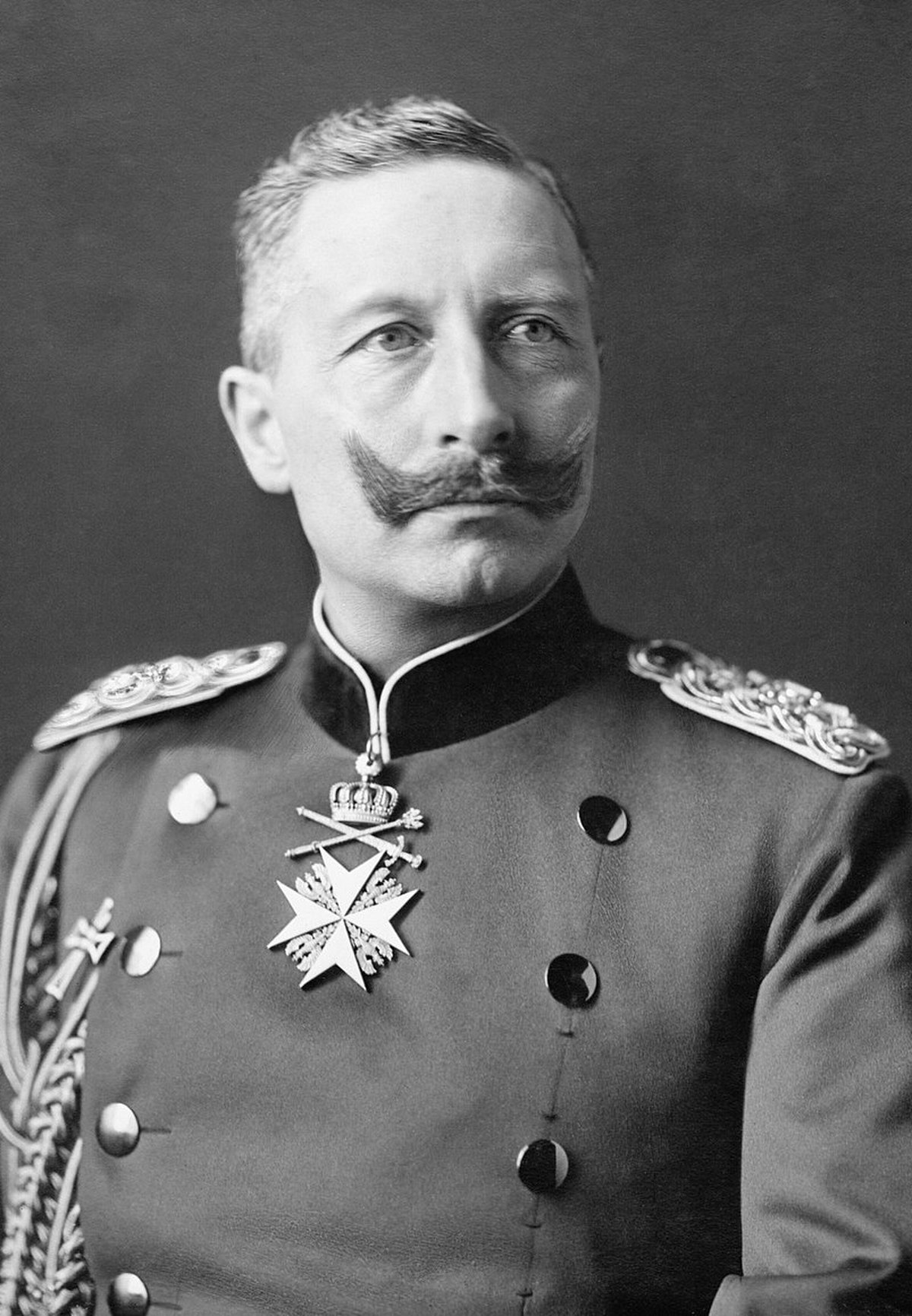
Wilhelminian Era
GermanyWilhelm II was the last German Emperor and King of Prussia, reigning from 15 June 1888 until his abdication on 9 November 1918. Despite strengthening the German Empire's position as a great power by building a powerful navy, his tactless public statements and erratic foreign policy greatly antagonized the international community and are considered by many to be one of the underlying causes of World War I.
In March 1890, Wilhelm II dismissed the German Empire's powerful longtime Chancellor, Otto von Bismarck, and assumed direct control over his nation's policies, embarking on a bellicose "New Course" to cement its status as a leading world power. Over the course of his reign, the German colonial empire acquired new territories in China and the Pacific (such as Kiautschou Bay, the Northern Mariana Islands, and the Caroline Islands) and became Europe's largest manufacturer. However, Wilhelm often undermined such progress by threatening and making tactless statements towards other countries without first consulting his ministers. Likewise, his regime did much to alienate itself from other great powers by initiating a massive naval build-up, contesting French control of Morocco, and building a railway through Baghdad that challenged Britain's dominion in the Persian Gulf. By the second decade of the 20th century, Germany could rely only on significantly weaker nations such as Austria-Hungary and the declining Ottoman Empire as allies.
Wilhelm's reign culminated in Germany's guarantee of military support to Austria-Hungary during the crisis of July 1914, one of the immediate causes of World War I. A lax wartime leader, Wilhelm left virtually all decision-making regarding strategy and organisation of the war effort to the German Army's Great General Staff. By August 1916, this broad delegation of power gave rise to a de facto military dictatorship that dominated national policy for the rest of the conflict. Despite emerging victorious over Russia and obtaining significant territorial gains in Eastern Europe, Germany was forced to relinquish all its conquests after a decisive defeat on the Western Front in the fall of 1918. Losing the support of his country's military and many of his subjects, Wilhelm was forced to abdicate during the German Revolution of 1918–1919. The revolution converted Germany from a monarchy into an unstable democratic state known as the Weimar Republic.
